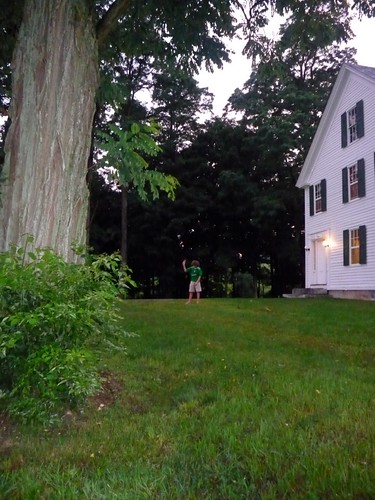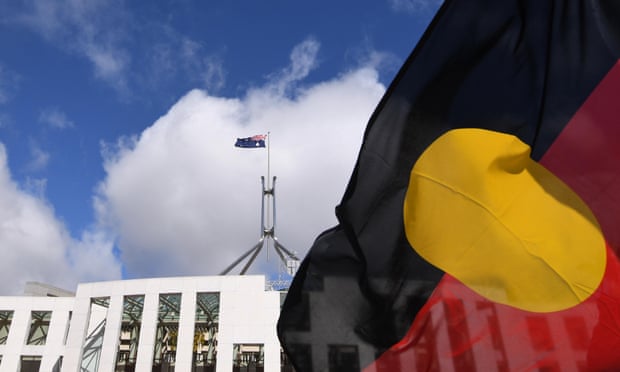Peter Dutton says Coalition will hold Indigenous recognition referendum if voice to parliament vote fails
Dutton #Dutton

Indigenous leaders have dismissed opposition leader Peter Dutton’s promise to hold another referendum on constitutional recognition if the voice vote fails and the Coalition win the next election.
Dutton told Sky News on Sunday that, if elected, his party would send Australians back to the ballot box to vote on constitutional recognition, saying it is “the right thing to do” and that he supported “regional voices”.
The opposition leader said it was a “fair compromise” for prime minister Anthony Albanese to consider, before describing the voice as “divisive”.
The opposition is against a voice to parliament, which would provide advice on issues affecting Aboriginal and Torres Strait Islander people, but has supported constitutional recognition since the Howard government.
Dutton reaffirmed the party’s position on constitutional recognition on Sunday, saying he believes it is “respectful”.
“But enshrining a voice in the constitution is divisive, it will divide the country down the middle. It will not provide the practical outcomes,” Dutton said on Sunday.
“It will change the way of government very significantly, because of the broad words.”
He said it would grind government decision-making “to a near halt”.
It is the first time since the referendum launch that Dutton has raised the possibility of Australians facing a second referendum if the voice to parliament is defeated in October.
Nationals leader David Littleproud told Guardian Australia on Sunday he would support Dutton’s promise of another referendum for constitutional recognition, admitting the Coalition hadn’t moved quickly enough to do it during its nine years in government.
“There’ll be no victory lap from the Nationals if the voice goes down,” Littleproud said.
“If the government or anyone else wants to work through a proper process of constitutional recognition, and that’s done through a constitutional convention – we have no issues in that.”
Dutton’s comments were addressed as the Uluru Dialogue launched a new television ad campaign featuring John Farnham’s iconic song, You’re the Voice, in Melbourne.
Marcus Stewart, an Uluru Dialogue representative, criticised the opposition leader’s suggestion and said it would delay urgent improvements to people’s lives.
“How long do we have to wait to put this to the Australian people? We know the outcomes in our community now. Our communities on the ground are suffering. We need to do better,” he said.
“We’ve seen failures by consecutive governments, so kicking the can down the road isn’t what this is about. We need change to happen now.
“We have 42 days to potentially wake up to a better country, on the Sunday after the referendum. Stalling only means the outcomes for our communities are going to get worse. This is urgent. We have to act now.”
Kristie Parker, a strategic advisor to the Uluru Dialogue, accused Dutton of not listening to her community.
skip past newsletter promotion
Sign up to Afternoon Update
Our Australian afternoon update breaks down the key stories of the day, telling you what’s happening and why it matters
Privacy Notice: Newsletters may contain info about charities, online ads, and content funded by outside parties. For more information see our Privacy Policy. We use Google reCaptcha to protect our website and the Google Privacy Policy and Terms of Service apply.
after newsletter promotion
“This demonstrates that the opposition leader is not listening to Aboriginal and Torres Strait Islander people, who have very clearly asked for something that will change our lives,” she said.
“Some people have said the referendum is an expensive exercise, and yet here we have the opposition leader, proposing to spend the same amount of money on something that would not change lives.”
Quick GuideWhat is the Indigenous voice to parliament and how would it work?Show
What has happened already?
The Albanese government has put forward the referendum question: “A Proposed Law: to alter the Constitution to recognise the First Peoples of Australia by establishing an Aboriginal and Torres Strait Islander Voice. Do you approve this proposed alteration?”
The PM also suggested three sentences be added to the constitution:
How would it work?
The voice would be able to make recommendations to the Australian parliament and government on matters relating to the social, spiritual and economic wellbeing of Aboriginal and Torres Strait Islander people.
The voice would be able to table formal advice in parliament and a parliamentary committee would consider that advice. But the voice co-design report said all elements would be non-justiciable, meaning there could not be a court challenge and no law could be invalidated based on this consultation.
How would it be structured?
The co-design report recommended the national voice have 24 members, encompassing two from each state, the Northern Territory, ACT and Torres Strait. A further five members would represent remote areas and an additional member would represent Torres Strait Islanders living on the mainland.
Members would serve four-year terms, with half the membership determined every two years.
For more detail, read our explainer here.
Photograph: Lukas Coch/AAP
Thank you for your feedback.
The voice to parliament explained in under two minutes – video
Debate on the matter has kicked up a gear since the prime minister announced 14 October as the date for the referendum.
On Saturday, Albanese took aim at “fear campaigns” about the voice.
“This campaign is going to be won by one-on-one conversations with people, making sure that the fear campaigns which are there [are] no more real than the fear campaigns that were there about the apology to stolen generations, about Mabo, about native title, about marriage equality, about all of these issues,” he told supporters in Canberra.
The referendum’s success depends on majority support across the country and in four of six Australian states.
The question to be put in the referendum is: “A Proposed Law: to alter the Constitution to recognise the First Peoples of Australia by establishing an Aboriginal and Torres Strait Islander Voice. Do you approve this proposed alteration?”
If the referendum vote is successful, the government will then design the specific form of the voice, which will be implemented via legislation passed by and debated in parliament.
– With Australian Associated Press